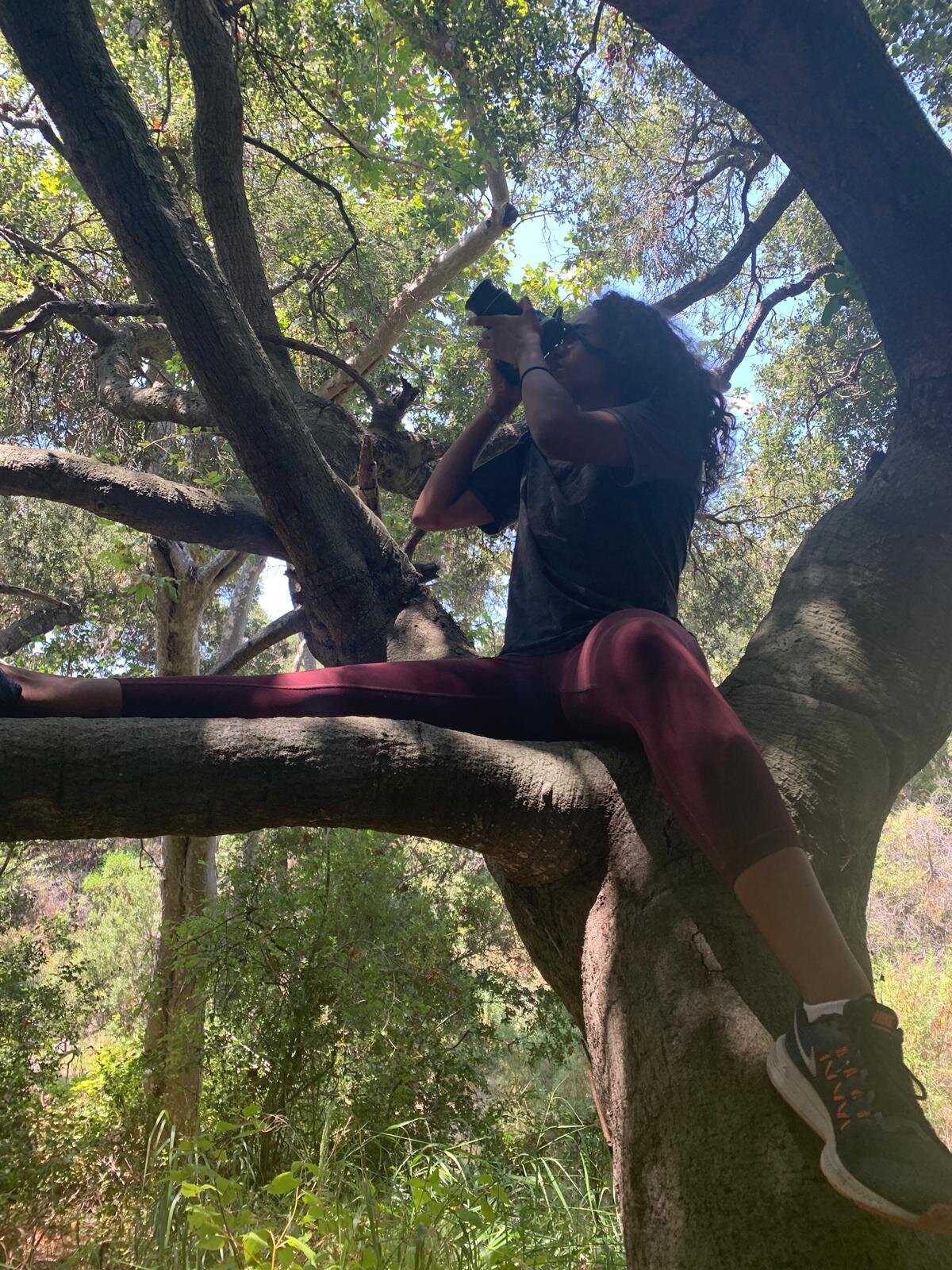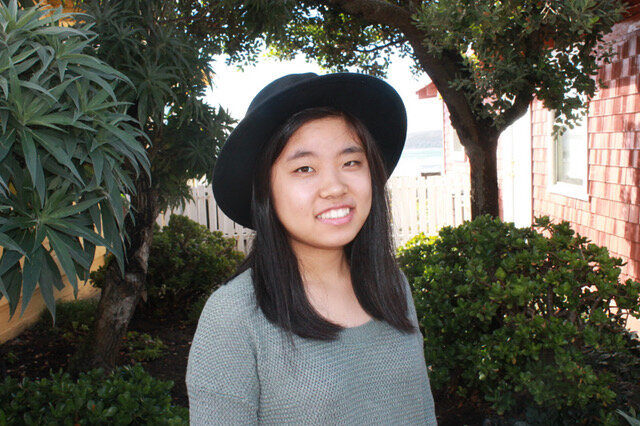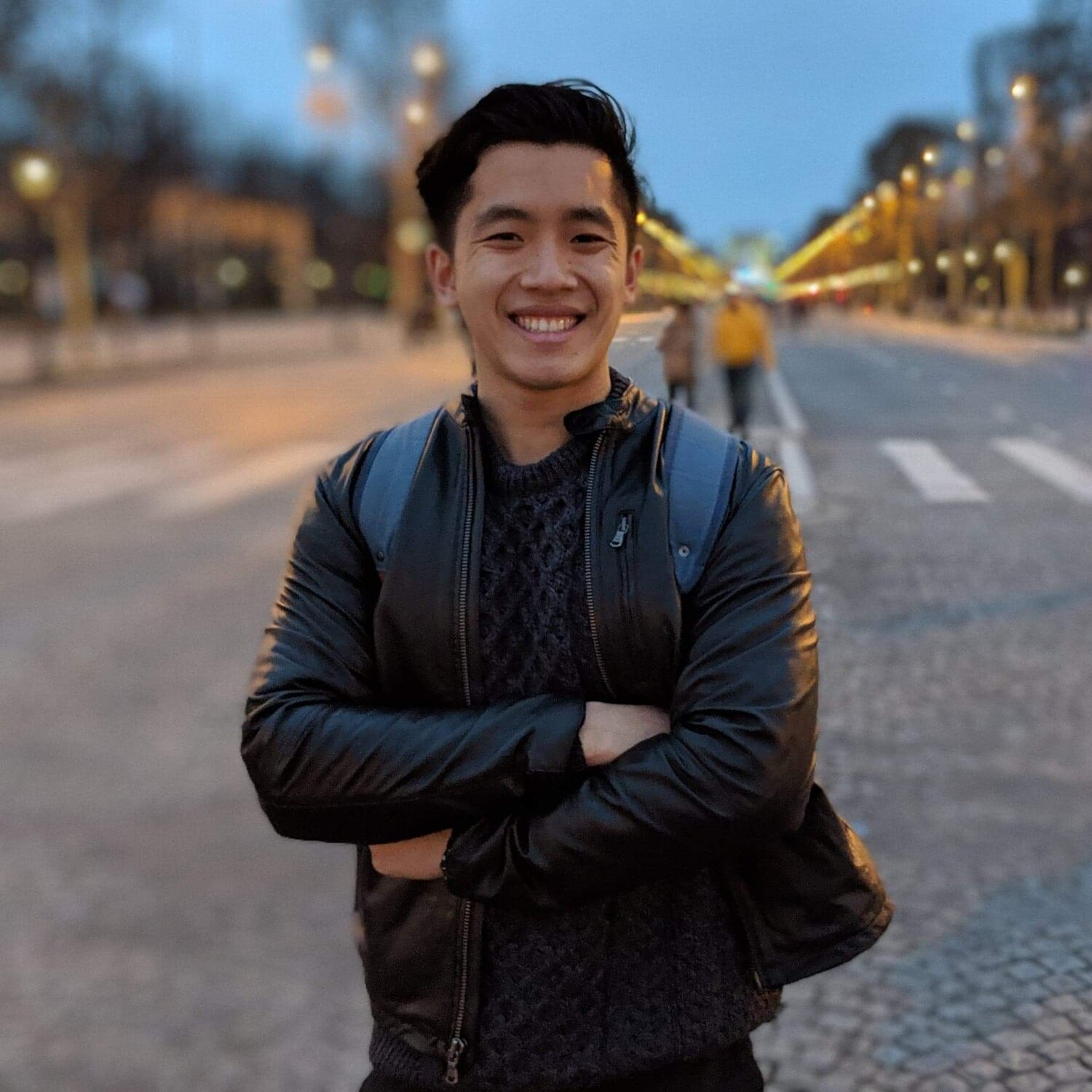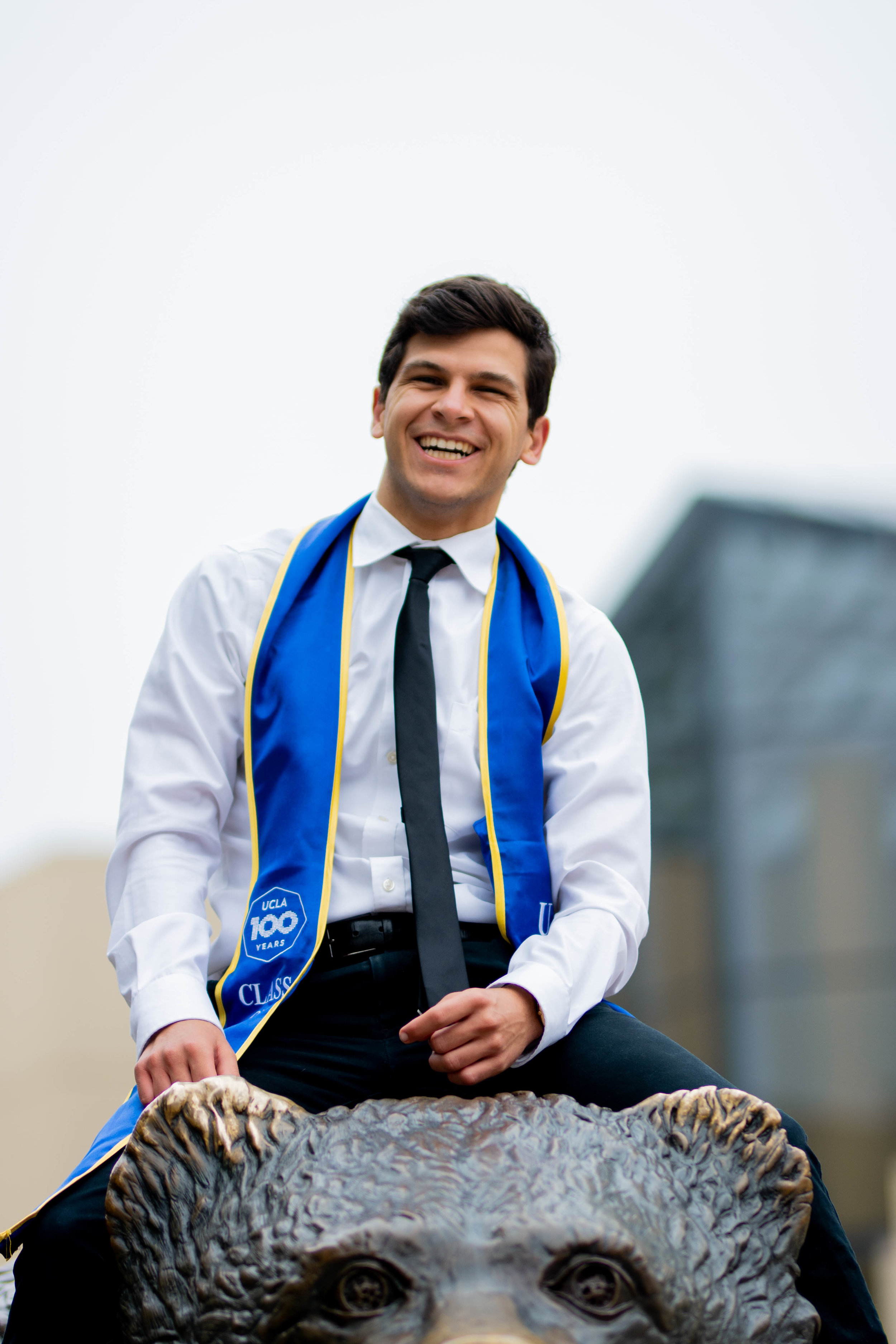Brain jelly that oozes between your fingers. Leaky breast implants that cause invisible illness. The human body, cadavers, cancer, and medicine, oh my! October is Breast Cancer Awareness Month and Halloween, and we have a spooktacular interview that combines all these creepy subjects with thoughtfulness and insight. Heather P. is the PCH Tutors administrator who also happens to be a third-year student of Traditional Chinese Medicine (TCM) and an acupuncture intern at Emperor’s College in Santa Monica. She recently spent a week in Colorado dissecting a dead (human) body for science - and it all started with a breast implant that sent her on a years-long health and wellness journey and the pursuit of a medical degree.
Did you have to do a dissection as part of your degree in TCM?
No. I did it primarily for my own personal development and primarily to develop my practice as a yoga teacher. But I also thought it would inform my acupuncture practice as well. Really, it was totally for fun. But I’ve had a long personal journey with health and wellness that all started with a breast surgery.
Really? Plastic surgery led you to Traditional Chinese Medicine?
As a teen I had unevenly sized breasts & I wanted to change that. In 2003, I found a plastic surgeon who recommended I get an implant to augment the smaller breast (rather than what I wanted: reduce the larger). My understanding of my options was limited, & I felt pressured to follow his lead.
After surgery, & for over a decade following it, I experienced many health issues including chronic sore throats, sinus infections, fatigue, brain fog, pain, numbing, nausea, anxiety, disconnection to my body, sensitive skin & intolerances to foods & the environment.
Were these health problems what sparked an interest in yoga and holistic medicine?
My mom has always been into holistic medicine, and after doctors couldn’t help me with my health issues she introduced me to a lot of alternative methods of healing: yoga, reiki, lymphatic drainage, acupuncture, etc.
I didn’t exactly know my implant was a trigger for my health issues, but I tried everything else and by 2014 I felt ready to have it removed. I wish I could say this brought peace to what was a traumatic journey for me, but my second surgery came with real challenges, too. While under the knife my surgeon made decisions regarding the shape and size of my breasts that we hadn’t agreed on, including leaving the “capsule” in, which is the scar tissue around the implant, that can continue to cause issues, even after the implant is removed. The results of both surgeries left me feeling an enormous amount of mistrust - in myself and in others.
When did you start to realize that your implant may have been the culprit behind all your health problems?
It actually wasn’t until several years after my explant that I totally connected the dots. Lots of women with implants started speaking out more about their symptoms and we realized we all had a handful of the same ones. When removed “en-bloc,” which includes the scar tissue that forms around the implant, a lot of womens’ symptoms start to fade.
I have since learned with research that my body viewed my implant as toxic, resulting in my health issues. My symptoms, amongst others, are now acknowledged by patients & some medical professionals as Breast Implant Illness (BII - not recognized by the FDA). I have also learned that it’s not uncommon to feel unheard & without enough information after surgery.
So you have the implant out now. Have holistic and alternative healing methods truly helped your healing process?
Even though I still have the capsule in, I feel a lot better, though some symptoms persist and I do wish all of the capsule was removed. Today, I continue to heal after having my implant removed. I’m grateful to those who shared their stories & listened to mine, & those who helped me heal through acupuncture, reiki, lymphatic drainage & yoga. I’m very privileged to have been able to take my health into my own hands.
Is your personal experience with breast implants and your passion to share your story what led you to become a practitioner yourself?
Yes. A lot of women say they aren’t even counseled to go flat after mastectomies, it’s just like, “Do you want this implant or that implant or fat transplant?” But implants can cause a rare kind of cancer, called Breast Implant Associated Lymphoma (BIA-ALCL). BIA-ALCL is not breast cancer - it is a type of non-Hodgkin's lymphoma (cancer of the immune system). In most cases, BIA-ALCL is found in the scar tissue and fluid near the implant, but in some cases, it can spread throughout the body and many women aren’t truly educated on the risks involved.
In July 2019, the FDA recalled several implants due to the possibility of BIA-ALCL, including the one I had, but they do not recommend removal, since the cancer seems rare right now, and since they don’t recognize the other symptoms as being connected to implants.
And TODAY, the FDA announced it’s recommending breast implant manufacturer warnings be added to their products, citing an overwhelming outcry from women who have suffered health problems they say are related to their implants.
WHOA. That is all happening right now!
It’s all insanity.
So a journey with breast plant illness made you curious about health and human bodies, and you decided to go dissect one and learn more about it.
I got into Reiki, yoga, and acupuncture when I was looking for ways to take care of myself. I felt western doctors couldn’t, and nobody could figure out what was wrong with me. Learning science as well as these modalities have helped me to understand for myself how the body functions and how to heal. Then I felt the best way to get to the bottom of my illness and how the body works was through, literally, the body - which led me to the dissection.
Oh yes, the bodies! That’s how this whole conversation started, really. Tell us about the cadaver program you chose.
The training was in Boulder, CO., at the Laboratories of Anatomical Enlightenment. It’s one of only a few private labs run by this amazing guy, Todd Garcia, who is a wealth of knowledge and knows so much about the human body, anatomy and physiology, etc.
Todd hosts dissections for different groups of people at his lab. I did my training through Yoga Medicine. They do 200 and 500 hour yoga teacher trainings and in order to do the dissection I did I had to already be a certified yoga teacher.
How many cadavers did your group dissect?
Our training group had four cadavers: three female, one male. We had eight people working on each cadaver, so there were about 30 of us in total.
How does one get into the cadavers industry?
The same way anyone gets into any profession, I suppose. Long story short, Todd started assisting some of his teachers in the classroom, they liked him and kept having him back. Eventually he started assisting dissections, became good at it and realized he enjoyed teaching other people.
Right now he obtains cadavers through a university in Utah. In the program there, the person donating their body to science has to fill out a lot of forms in advance, e.g., a family member can’t do it for you. He says the process is pretty extensive, and he drives out and gets them to bring them back to his lab. He was going to pick up 12 while we were there.
What kind of cadavers are they?
They’re untreated cadavers, meaning they’re not treated with formaldehyde - they’re untouched, basically “as is” after they pass away. He keeps them frozen until he gets a group scheduled to come dissect them. They thaw in about 2-3 days. Each night when we finished for the day we put them in a cooler overnight because they decompose super quickly. Five days is about the longest you can do an untreated dissection.
Are there benefits to dissecting an untreated cadaver as opposed to a treated one?
There are benefits to dissecting both untreated and treated cadavers. The untreated cadaver is more real, and then you don’t have exposure to formaldehyde. But when the bodies are preserved, you have a longer timeframe in which to work. I’ve never done a preserved or treated cadaver but a friend of mine who is in medical school spent a whole year dissecting one body, whereas we had to finish our work within a few days. With preserved bodies you can see all of the muscles more clearly, too. For example, on a treated body the brain is preserved, versus ours that we took out of the skull and within minutes it started to disintegrate into a jelly-like, mushy brain goop.
Whoa, brain jelly? That’s spooky!
Yes, an untreated brain will start to slip through your fingers once you remove it. We put ours on the table so we could still see it.
What did you learn about the brain from dissecting it?
Different parts of the brain are different colors, ranging from more white - which is mostly the myelin, basically the brain’s insulation - to different parts that are pinkish and nude color. In the brain stem you can see the 12 cranial nerves, which is cool because I’ve studied that in school. We also saw the pituitary gland, which is so tiny but is responsible for so much in the body.
Where and how do you start your dissection?
It was cool to look at a body before I even started and seeing how it lays on the table. We look at whether there is scoliosis, and if the body is the same from one side to the other. We don’t know if they died from a disease or what did they do with their life - we don’t know anything about them.
We started the dissection with the skin layer and attempted to remove the skin from head to toe in one piece. We didn’t get exactly one piece, but it was pretty successful overall.
Tell us about the skin layers.
Under the top layer of skin you have the adipose layer - I didn’t know you could also take that layer off in one piece, so that was fascinating. And it was fascinating to see the fascia, which is connective tissue, that there are a lot of different layers of fascia but it kind of separates the skin from the adipose yet also goes through the adipose. Fascia wraps around all the muscles individually and all the muscles together, and wraps around veins and arteries and nerves.
I think the coolest part of doing the dissection layer by layer is really seeing that everything in the body is connected. As a yoga teacher and soon to be acupuncturist that’s something I tell clients a lot: everything is connected. It’s something I believe, but this experience really solidified that idea.
What was the most challenging part of dissecting a cadaver?
The first day was the hardest for me and I wasn’t sure if I made a mistake signing up for this. There were a lot of hard parts for me at the beginning. I didn’t like cutting through skin.
It’s just too real. That skin is what we have to relate to, our outsides. Internally, of course, you sometimes feel your body going through digestion or ovulation but when it comes to interacting with the world you really just have your own skin, so cutting through the skin of a cadaver was really hard for me.
Once we got past that I was surprisingly okay in terms of the physical dissection. I’m a pretty squeamish person and never thought I’d do something like this, nor was I interested in science really before the last few years. So it was definitely a challenge and a stretch and put me out of my comfort zone.
It was also really emotional in a way that’s hard to describe. Just thinking about life and death and what this person went through in their life and how they donated their body to science so others could learn from them. It also made me think a lot about how I feel in my physical body and feel really fortunate that I had the opportunity to do something like this.
It was also really hard work.
What did you initially set out to see?
I wanted to see everything. I’ve taught a handful of 200-hour yoga teacher trainings in the past couple years: I taught the anatomy section of the training, so I set out to really learn more about anatomy as it pertains to yoga. Also, there are about 361 meridian acupuncture points and 40 extra points and all these points have point locations that have anatomical terms in them, whether tendon, muscle, bone, joint, and I really wanted to see all of those. I didn’t go through the points and see which one is this and that, but I did my best to try to see all the anatomical landmarks. Looking back, I didn’t get enough time at the ankle or elbow joints which I would have liked, but I got a good look at the knee, hip and shoulder, which are major joints in the body. And I got to see the synovial fluid in the knee joint which is something I always think and teach about but didn’t know exactly what it was like. It was this honey-like fluid in the knee. That was very cool.
One of the things I always say to anyone who will listen to me is “Motion is lotion.” I actually got to see that in action. Obviously it’s a little different in a cadaver than a body that is still living, but the same thing held true: each layer had a certain amount of movement that increased as we worked with it. For example, we got to lift the leg up and move it around, seeing the flexion and extension at the hip and knee and ankle - still, lotion is motion, and you get more motion as you move the body more.
I also really wanted to see the lungs because one of the only ways you can injure a person in acupuncture is by puncturing the lung cavity -- pneumothorax. Around the rib cage we don’t needle patients perpendicularly, we go oblique, so it’s going in but not past the ribs so I wanted to see where they’re situated and get to know them better. Without living lungs there’s not as much expansion happening in a cadaver, but someone did bring a straw to the dissection which she stuck into the cadaver’s trachea and blew into it, so we got to watch the lungs expand. It was really awesome.
I also wanted to see where implants go when they’re placed under the muscle, and what the breast tissue is like.
What are some things you had to learn right away while dissecting a cadaver?
Understanding where you’re navigating and how to go slowly. The scalpel is extremely sharp and if you’re going layer by layer you have to make sure you’re going along fascia lines and not too deep. Past skin and adipose and fascia there are so many layers of muscles beyond that. The idea was to make the dissected cadaver a textbook model, and if you cut too deep you can’t go back.
Were there any “oh no,” moments where you mis-sliced or messed something up irreversibly?
There was a little bit of that but everyone was supportive of each other - and there are two sides of the body! It was the greatest team building experience. There were eight people and eight scalpels on each cadaver and most of the time we were all working at the same time in different areas on the body.
Before we went into the lab we did a pre-lab session where everyone got to share their background, why they were there, and share personal projects or things they wanted to see specifically while working. Some people had things going on with their discs or spines so they wanted to see that or people who have clients with arthritis or working with people with heart disease and might want to see a clogged artery. So we were all aware of different projects and what people wanted to see, and nobody wanted to mess up each other’s projects. There were times when people couldn’t precisely do what they wanted but for the most part people were patient and understanding.
What are some things you learned about your cadavers?
They were all probably in their 80s and 90s. It was interesting to see on mine that she had scoliosis from looking outside before starting the dissection and then seeing the difference between bone structures side to side, muscles left to right, how one side had carried the weight, and how her right leg’s range of motion was so different from the left. She had some adhesions on her legs and throughout her body. Also, my cadaver didn’t have eyes and all the other ones did so we think maybe those were donated separately. We don’t know.
It was cool to see in my cadaver the difference from left to right and how the body is capable of adapting and repairing and healing. Everything was so fascinating. Each section was so surreal. It was so interesting to see you could go layer by layer skin to adipose, and just when I thought that was the coolest thing, it was dissecting the muscles and seeing where they all attach.
We got to cut and take off the sternum and ribs in order to take out and look at the lungs and the heart. We also took out the spleen, stomach, intestines, gallbladders, kidneys and liver in one piece. That was really cool. It was a lot of work to take them out; someone had to hold them up while the other person cut them out. I didn’t realize that one kidney is usually significantly larger than the other.
Seeing the sciatic nerve was really cool too. The nerve originates at the lumbar spine, runs through the piriformis under the glutes, then down your leg and bifurcates behind the knee into two (tibial and peroneal nerves). Todd taught us that a lot of people think they have sciatica but it’s usually the cluneal nerve which runs over the back of the pelvis.
Another cadaver had screws in her femur and a mass by her heart with clogged arteries that we’re not sure if that affected how she passed away, we can only guess.
Did the team react or interact with each other when you were uncovering these cool things?
We would all just look at each other like “OMG are you seeing this!?”
During the lab, it was encouraged to not just get sucked into your own body part interests but to also walk around your cadaver and see what was going on with it and look at the other cadavers. So we would point things out to each other. A lot of times we were just speechless, I’m doing my best but there really aren’t words to describe this experience.
How do you think the experience impacted your views on life and the human body?
It made life seem precious, even just in terms of what our bodies are capable of. Society makes people behave really hard on their bodies but they’re tremendous and capable of a lot.
It made me feel that movement and holistic medicine and care are really important, and that it’s important to treat the body as a whole and not just little bits and pieces. I feel like sometimes alternative medicine can feel like an uphill battle with the way our insurance and medical system works, but it made me want to keep fighting for it and make it accessible to as many people as I can.
I just started my third year at Emperor’s College and I’m seeing my own acupuncture patients in the clinic. The cadaver dissection experience definitely made me feel more comfortable working with all different kinds of bodies and reading the body. Even though a lot of Chinese medicine is based on blood and qi - energy - and that’s not a hundred percent in a cadaver, I still felt connected to the energy of the people who donated their bodies to science.
Why do you think you felt that connection with a technically lifeless form?
I feel like it’s because a body can tell a story. Going through the layers of it, I felt like we were being told a story about the person’s life which connected me to their energy.
There’s so much we as practitioners have to pick up on that our patients aren’t always saying with words, or they themselves don’t know. Being able to just look at the body and make connections on what was going on in the body based on what I saw is what we partly do in Chinese medicine too, we ask a lot of questions, but also do a lot of observing - looking at tongue, pulse, hair or nails, how they carry themselves, how their eyes look, etc. - which is not exactly parallel to a cadaver but the experience of observation is similar in a cadaver.
Did anything gross you out?
The smells were very strong and I’m glad I didn’t have to smell formaldehyde but there were a lot of smells coming from the breakdown of the tissues. We clamped the stomach and the large intestine so if there was gas or fecal matter it didn’t come out when we cut those organs out but there were still smells.
I would put dabs of Vicks in my nostrils and a mask over that. But once you’re in the room, you start to get a little desensitized to the smell.
I’m sure that people doing all kinds of dissections have a spiritual experience but since my group was all yoga teachers it felt even more mindful and intentional than an average dissection might seem. Having our teachers be more on the spiritual side made it a more mindful experience as well.
How long did the full dissection take?
We did a half day the first day, then three full days of about 9-5 work, then a half day the final day.
Did dissecting a body change your mind about anything?
I never thought about it before this but it made me want to donate my body to science. I always thought that being preserved and buried in a coffin was bizarre and bad for the environment. There are mushroom suits and ways to plant yourself to grow into a tree and I always wanted to do that. But I think that you can learn so much from a dissection and someone gave their body to me, so it would be cool to be able to give my body back.
A big takeaway for me is that we still have so much to learn. There is still so much about the human body that we don’t know. Even just 10 or so years ago people didn’t even know that much about fascia and, as Todd would always say, “The world was flat until it was round.” And it’s true. Even though to me it felt like he knew everything, he was also able to say he didn’t know if he didn’t know why something when we asked him. In addition to learning about physical dissection I think he inspired me to be able to say, “I don’t know” when I’m teaching, and have that be okay. Because I don’t know everything.
What surprised you the most?
There were a few people who’d done the cadaver dissection training before, with the same company. When I found that out before we got started I was like, why are they doing this again?! But I think the thing that surprised me the most was that I now feel like I could and want to do it again one day.
If you were to do it again, what would you do differently?
The first time you do it, there’s so much to navigate and learn that you don’t know, you can’t keep track of all the things you want to see. I think I’m definitely satisfied with the experience and saw and learned so much but I still feel there’s so much to learn and see. So I think that if I could do it again I’d pay more attention to the dissection manual and make sure I see all the things I want to see. If I were to do it again I would know more of what to expect and could be more thorough.
Did you enjoy the experience?
Yes. There were times when I wanted it to be over ASAP and times I never wanted it to be over. Todd said something poignant: “Never wait until something is over to enjoy it.” That helped me be present in the lab itself and is a great mantra to have in your life when you’re doing anything. He also said, “Discipline is a gift that comes from truly being present,” which I think also made me be more present and grateful for the experience and made me appreciate my discipline.
One of the coolest things about the whole experience and being surrounded by this group was that everyone was committed to learn as much as they could. I’ve done trainings and schooling where it hasn’t seemed like all the people attending were that committed. So it was unique in that sense.
What’s your biggest takeaway from both this human dissection and your own health experiences?
That our body systems are truly amazing and capable of so much. Through my own experiences - taking agency of my body, learning how I feel and respond to different things, and learning how to better care for it - and also through exploring the body of someone who donated theirs to science, I’ve learned that the human body is truly incredible and capable of so much. I’ve realized how negative body shame can be, and think more and more about how much we should love and care for our own bodies in the shapes an sizes they are. Always listen to your own body and respond to what it’s telling you!
Editor’s Note: To experience TCM for yourself, you can book an acupuncture appointment at the Emperor’s College and have your own taste of the QI. Heather is also a Reiki practitioner and yoga instructor. You can contact her on her website, and learn more about some of the wellness disciplines she maintains. Her door is open to anyone who has concerns about their health, their implants, or has explanted, or who can relate. Reach out if you want to talk, want more information, or if you’re interested in a reiki session to address your healing needs.
